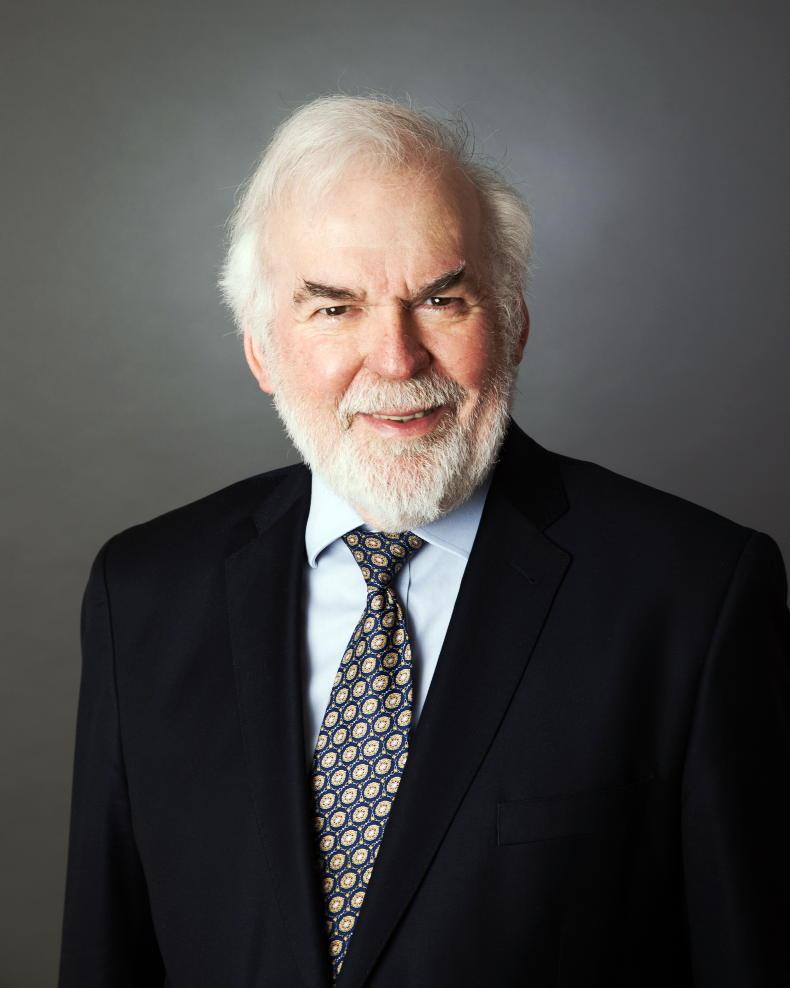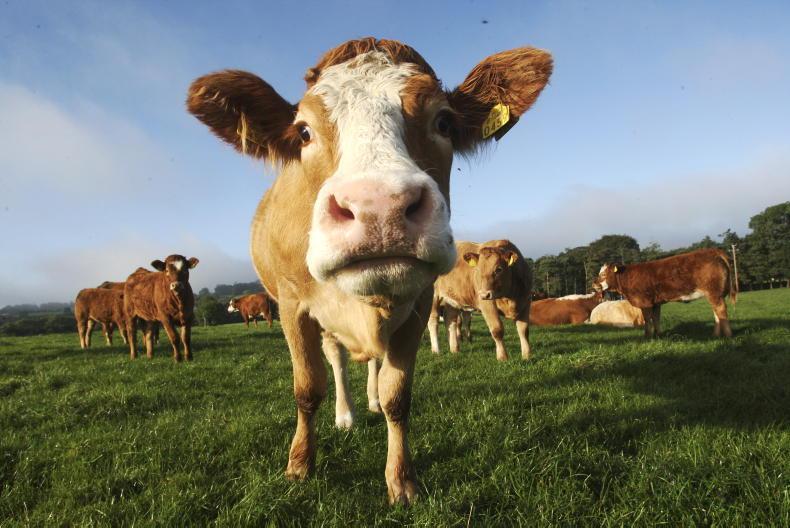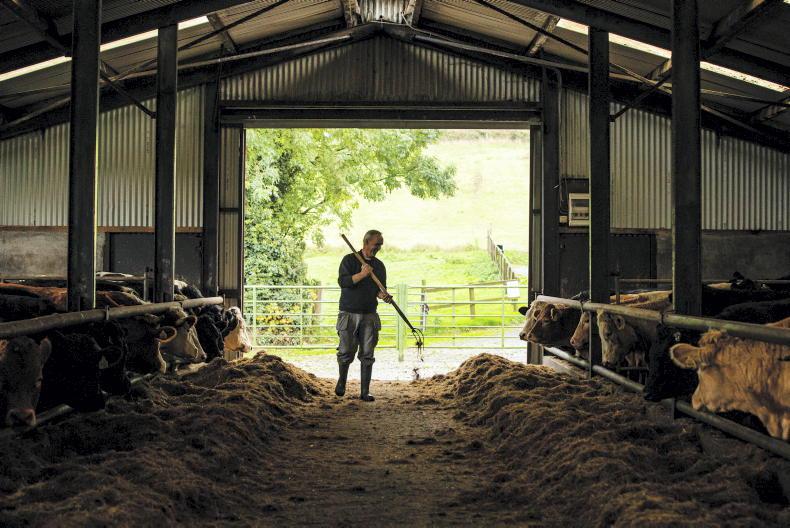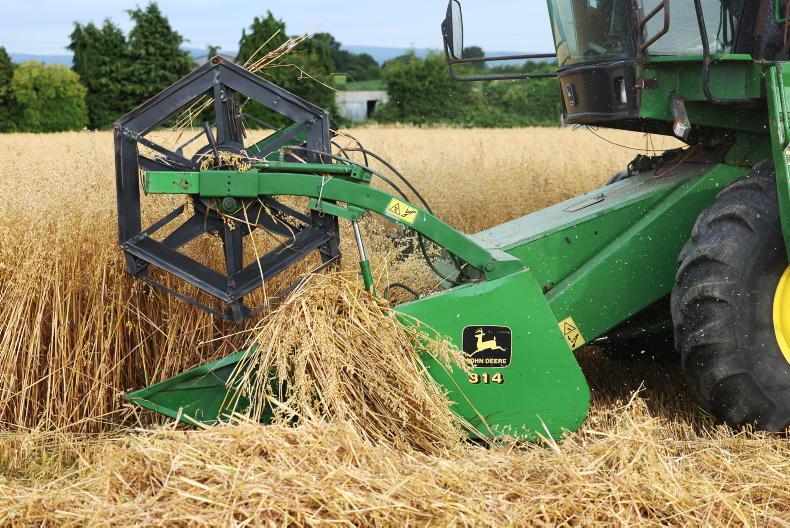Both Irish and international consumers want sustainability when it comes to food, according to Tom Arnold, chair of the agri-food strategy to 2030.
Arnold told RTÉ’s Countrywide on Saturday morning that the working group on the strategy had to produce a strategy that met this basic requirement.
“The terms of reference we were given were to come up with a vision for 2030, which had the agri-food sector delivering on sustainability in its three dimensions – economic, environmental and social – and to come up with the policies that would get us there.
“That was our central purpose. I think we’ve delivered on that central purpose.
“And the way we went about it was at our very first working meeting in January of last year, we agreed to adopt what's called a food systems approach, which said at the beginning we would recognise that policies for food, the environment and health, had to be fully recognised and interconnected.
Responsibility
“We would also recognise that it was the whole of the of the sector that had a responsibility towards developing a sustainable food system; from the input supplier, to the farmer, to the processor, to the retailer, to the citizen and to the consumer.
“The message which kept coming through as we were doing our work from the whole wider sector was that sustainability is now what the citizen, and the consumer wants, both domestically here in Ireland, and internationally.
“And we had to produce a strategy which met that basic requirement well and I think is what we’ve done,” he said.
“I think we’re at a stage where we’re not going to be increasing output at anything like the same level as we have done in the past. That’s a basic issue.
“But we have legitimately developed, and done it very well, export markets in many countries and the demand for the type of food that Ireland is producing – safe, environmentally sustainable food – the demand for that is growing. And I think Ireland can meet that demand,” he said.

Tom Arnold.
Arnold said that the demand for animal protein is growing and that by 2030 the world’s population is going to increase by about two billion people.
“A lot of those people are going to become better off and are looking to have better diets. Part of those better diets, is indeed more consumption of animal protein,” he said.
“We acknowledge in our strategy, that in the developed parts of the world, there is indeed a case for a reduction in meat, particularly processed meats for in the interest of health.”
However, he said in about two-thirds of the world’s population, which is becoming more prosperous, “there is a demand for more animal protein products safely produced, environmentally produced and indeed necessary for the improved nutrition of these people in developing countries”.
Debate
Arnold said he was very disappointed over the last few months about the tone and the quality of both political and public debate about the climate and biodiversity challenge.
“Because I think what it doesn’t recognise is the considerable level of common ground that there is between the two sides of this debate.
“It’s gotten to a point where it is completely unnecessarily decisive, but divisive. And I think we need to get to the point where we need to find that common ground and build on it, rather than narrow it down.
“That’s the basis we took in our strategy, because what we have done is set out a set of measures which, if implemented, will show that the agri-food sector has a crucially important role in addressing the climate and biodiversity challenge that we face, and they have to be brought on board to do this.”
Both Irish and international consumers want sustainability when it comes to food, according to Tom Arnold, chair of the agri-food strategy to 2030.
Arnold told RTÉ’s Countrywide on Saturday morning that the working group on the strategy had to produce a strategy that met this basic requirement.
“The terms of reference we were given were to come up with a vision for 2030, which had the agri-food sector delivering on sustainability in its three dimensions – economic, environmental and social – and to come up with the policies that would get us there.
“That was our central purpose. I think we’ve delivered on that central purpose.
“And the way we went about it was at our very first working meeting in January of last year, we agreed to adopt what's called a food systems approach, which said at the beginning we would recognise that policies for food, the environment and health, had to be fully recognised and interconnected.
Responsibility
“We would also recognise that it was the whole of the of the sector that had a responsibility towards developing a sustainable food system; from the input supplier, to the farmer, to the processor, to the retailer, to the citizen and to the consumer.
“The message which kept coming through as we were doing our work from the whole wider sector was that sustainability is now what the citizen, and the consumer wants, both domestically here in Ireland, and internationally.
“And we had to produce a strategy which met that basic requirement well and I think is what we’ve done,” he said.
“I think we’re at a stage where we’re not going to be increasing output at anything like the same level as we have done in the past. That’s a basic issue.
“But we have legitimately developed, and done it very well, export markets in many countries and the demand for the type of food that Ireland is producing – safe, environmentally sustainable food – the demand for that is growing. And I think Ireland can meet that demand,” he said.

Tom Arnold.
Arnold said that the demand for animal protein is growing and that by 2030 the world’s population is going to increase by about two billion people.
“A lot of those people are going to become better off and are looking to have better diets. Part of those better diets, is indeed more consumption of animal protein,” he said.
“We acknowledge in our strategy, that in the developed parts of the world, there is indeed a case for a reduction in meat, particularly processed meats for in the interest of health.”
However, he said in about two-thirds of the world’s population, which is becoming more prosperous, “there is a demand for more animal protein products safely produced, environmentally produced and indeed necessary for the improved nutrition of these people in developing countries”.
Debate
Arnold said he was very disappointed over the last few months about the tone and the quality of both political and public debate about the climate and biodiversity challenge.
“Because I think what it doesn’t recognise is the considerable level of common ground that there is between the two sides of this debate.
“It’s gotten to a point where it is completely unnecessarily decisive, but divisive. And I think we need to get to the point where we need to find that common ground and build on it, rather than narrow it down.
“That’s the basis we took in our strategy, because what we have done is set out a set of measures which, if implemented, will show that the agri-food sector has a crucially important role in addressing the climate and biodiversity challenge that we face, and they have to be brought on board to do this.”









SHARING OPTIONS